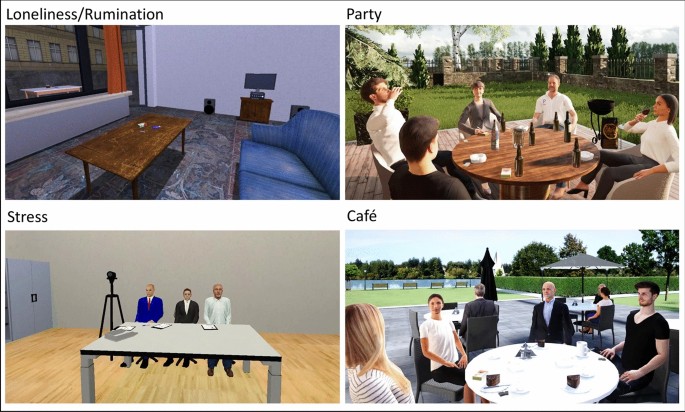Analysis of Emotion Induction in VR Scenarios
The use of Virtual Reality (VR) scenarios to induce emotions and assess their impact has been a growing area of interest in research. A recent study delved into the realm of emotion induction in VR scenarios to understand how different scenarios can evoke varying emotional responses.
The study utilized a linear mixed-effects model to analyze the induced emotions across different VR scenarios. The results revealed a significant interaction between emotion and scenario, indicating that each scenario elicited distinct emotions. For example, in the Loneliness/Rumination scenario, worry was significantly higher than stress and sociability. On the other hand, in the Party scenario, sociability was rated higher than worry and stress.
Furthermore, the study explored self-efficacy in VR scenarios, showing that participants reported high confidence in not smoking in similar real-life situations. The Café scenario received the highest ratings for self-efficacy, followed by Stress, Loneliness/Rumination, and Party.
Presence during VR experiences was also examined, with Loneliness/Rumination receiving higher presence ratings compared to Stress and Café. Additionally, the study found that presence decreased significantly from the first to the second run of each scenario.
In terms of tolerability, symptoms of simulator sickness such as headache, nausea, and vertigo were reported to a low degree, indicating good tolerability of the VR scenarios.
The study also delved into the course of craving during VR-CET, revealing significant effects of group, presentation, scenario, and within-scenario time. Smokers who relapsed experienced stronger craving throughout the VR-CET compared to those who maintained abstinence.
Lastly, the study investigated the predictive ability of craving on abstinence at a 6-month follow-up. Mean craving was found to be positively associated with relapse, with an optimal cut-off for predicting relapse identified.
Overall, this study sheds light on the intricate relationship between VR scenarios, emotions, self-efficacy, presence, craving, and abstinence, providing valuable insights for future research and interventions in the realm of VR technology and emotional manipulation.
